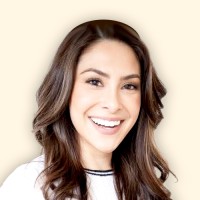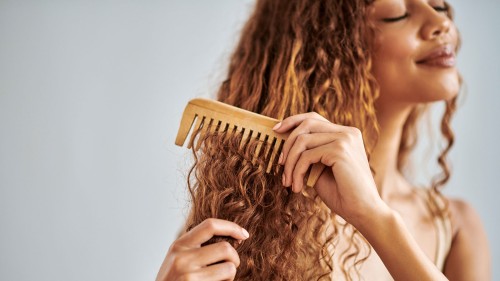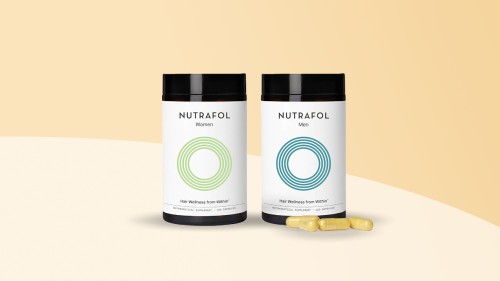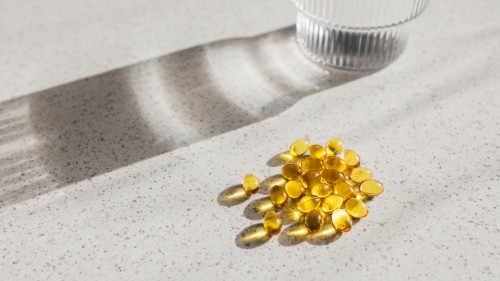Want Healthy Hair? Add These Vitamins and Foods to Your Diet
Published on March 11, 2022
Medically Reviewed by Natalie Olsen, MS, RDN
A diet rich in vitamins and minerals is essential for healthy hair growth. If you are looking to improve your hair health, here are some important vitamins and foods to add to your diet.

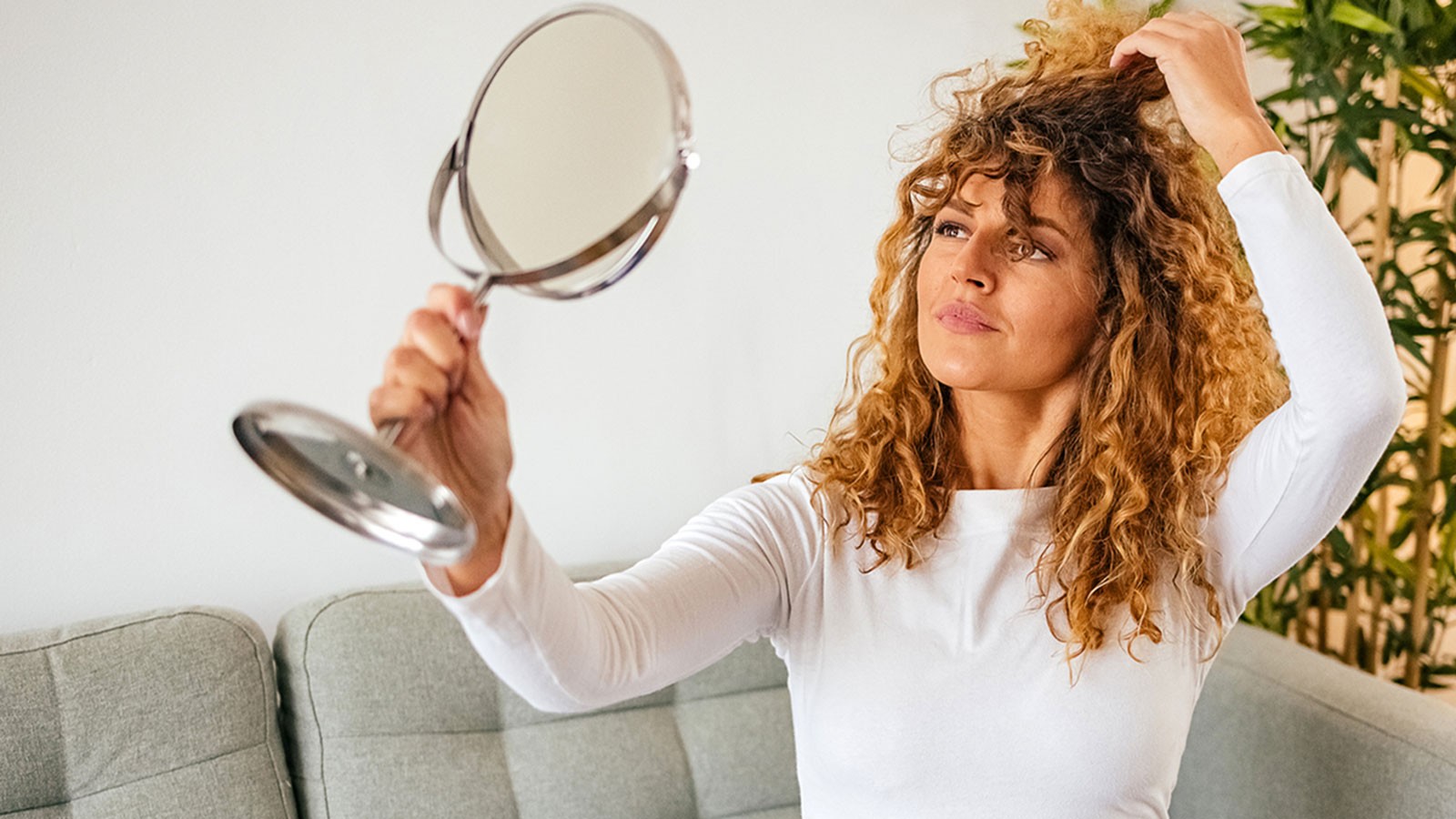
Eating a well-balanced diet that contains adequate vitamins and minerals can help you maintain healthy hair.
By contrast, specific vitamin and mineral deficiencies may lead to hair loss or damaged, brittle hair.
While not one vitamin can promote faster hair growth, an optimal intake of all essential vitamins may encourage optimal growth.
Here are the top vitamins to include in your diet for healthy hair.
Vitamin A
Vitamin A is essential in many bodily functions — it is vital for immune health, night vision, and critical for cellular growth and reproduction. (1)
Vitamin A is specifically important for hair growth due to its role in growing and replicating the skin cells that form your hair follicles. (1)
Additionally, vitamin A plays a vital role in sebum production, an oily substance that keeps your scalp moisturized and healthy. An adequate amount of sebum is essential for preventing dry, brittle hair. (1)
While it might seem tempting to take supplements to boost your vitamin A intake for more hair growth, it’s best to stick with whole food sources.
Studies have shown that too much vitamin A may lead to toxicity and unwanted hair loss. (1)
Vitamin A comes in two different forms through the diet — preformed vitamin A, derived from animal sources, and provitamin A carotenoids, which come from plant sources. (1)
|
Vitamin A Recommended Dietary Allowance (Daily) |
|
|---|---|
| Men 19 years + | 4,300 IU |
| Women 19 years + | 4,300 IU |
While there is no upper intake level for vitamin A from plant sources, ingesting too much vitamin A from animal sources may be toxic.
The tolerable upper intake level of vitamin A from animal sources is 10,000 IU (adults 19 years of age or older).
Typically, a healthy, varied diet will supply adequate vitamin A.
Some good sources of vitamin A include:
Preformed Vitamin A:
- Beef liver
- Chicken liver
- Cod liver oil
- Mackerel
- Salmon
Provitamin A Carotenoids:
- Sweet potatoes
- Carrots
- Butternut squash
- Tomatoes
- Cantaloupe
- Apricots
Summary
Vitamin A has many roles in the body. The replication of hair follicle cells is one.
Additionally, adequate vitamin A is essential for maintaining healthy oil production for your hair.
Orange foods like sweet potatoes, butternut squash, and carrots promote healthy hair growth by supporting the production of natural oils and cellular growth.
Vitamin B Complex
The vitamin B complex refers to a group of 8 vitamin substances.
These include:
- Thiamine (B1)
- Riboflavin (B2)
- Niacin (B3)
- Pantothenic acid (B5)
- Vitamin B6
- Biotin (B7)
- Folate
- Vitamin B12
These vitamins are essential in cell metabolism — they turn the food you eat into fuel.
Most people get the recommended amounts of these vitamins through diet alone since they are found in a wide variety of food.
Deficiencies in B vitamins biotin, folate, riboflavin, and B12 have been associated with hair loss and balding. (2)
Biotin (vitamin B7) plays a critical role in producing keratin, the protein that makes hair. (2)
Your diet must consist of adequate B vitamins to ensure optimal hair growth. Some good sources of B vitamins include:
- Eggs
- Beef, liver, and poultry
- Trout, salmon, and tuna fish
- Brown rice, barley, millet, and fortified whole grains
- Legumes, like beans, lentils, and garbanzo beans
- Citrus fruit
- Avocado
Summary
The vitamin B complex plays a critical role in producing keratin, the protein that builds your hair.
An optimal intake of B vitamins can be achieved through a healthy and balanced diet. Include foods like eggs, avocado, citrus fruit, legumes, and poultry for essential B vitamins and hair growth.
Vitamin C
Vitamin C is a potent antioxidant and vitamin that protects the body from free radicals.
Free radicals are unstable atoms in the body that may cause harm if not kept in check.
In the case of hair health, free radicals may cause damage to the hair follicle, leading to hair loss and baldness. (1)
Additionally, vitamin C plays an essential role in absorbing iron, making it a critical vitamin in iron deficiency hair loss. (3)
|
Vitamin C Recommended Dietary Allowance (Daily) |
|
|---|---|
| Men 19 years + | 90 mg |
| Women 19 years + | 75 mg |
| Pregnancy & lactation | 85–120 mg |
Vitamin C is best absorbed through food. Thus, it is essential to include a variety of vitamin C-rich foods in your diet to promote optimal hair growth. (1)
Some good sources of vitamin C include:
- citrus fruits, like oranges, kiwi, lemon, grapefruit
- strawberries
- tomatoes
- bell peppers
- cruciferous vegetables, like broccoli, Brussels sprouts, cabbage, and cauliflower
Summary
Vitamin C is critical in protecting the body from free radical damage and increases iron absorption.
Eating a diet with adequate vitamin C is vital in promoting optimal hair growth.
Include fresh fruits and vegetables like citrus fruits, strawberries, tomatoes, and cruciferous vegetables to increase your vitamin C intake.
Vitamin D
Vitamin D, best known as the sunshine vitamin, acts as both a vitamin and a hormone.
It plays a vital role in hair health due to its anti-inflammatory properties, protecting the hair follicles from damage due to irritation. (4)
It also affects the hair cycle, signaling the various phases of hair growth.
Research has shown a link between low vitamin D levels and increased hair loss. (4)
To ensure optimal Vitamin D levels, make it a goal to get some sunshine daily. Sun exposure recommendations vary based on your skin color, but aim for 10–30 minutes of sun midday, when the sun is at the highest point. (5)
If regular sunlight is not an option, or if you have a vitamin D deficiency, a vitamin D supplement is recommended.
You may also take cod liver oil. One tablespoon of cod liver oil contains more than three times the recommended amount of vitamin D.
Other sources of vitamin D include:
- Salmon
- Swordfish
- Orange juice fortified with vitamin D
- Dairy and plant milk fortified with vitamin D
Summary
Vitamin D plays many essential roles in the body — it protects the hair follicles from inflammation and may help decrease hair loss.
To increase your vitamin D production, be sure to get at least 10 minutes of sunshine first thing in the morning or add cod liver oil to your diet.
Vitamin E
Vitamin E acts as a critical antioxidant and has been shown to increase circulation in the body, an essential component of healthy hair follicles and hair growth. (6)
Like vitamin C, vitamin E also protects the body from free radical damage.
Research has shown that vitamin E protects the scalp, giving hair a solid foundation to grow. (6)
|
Vitamin E Recommended Dietary Allowance (Daily) |
|
|---|---|
| Men 14 years + | 15 mg |
| Women 14 years + | 15 mg |
| Pregnancy & lactation | 19 mg |
To ensure optimal intake of vitamin E, get creative with adding the following to your daily diet:
- Add wheat germ to smoothies or oatmeal.
- Try sunflower seeds on a salad or eat them alone as a snack.
- Pair almonds with an apple as a perfect snack between meals.
- Flaxseeds and flaxseed oil can be used for cooking or added to salads and smoothies.
- Peanut butter makes an easy sandwich for a quick meal on the go.
Summary
Vitamin E acts as a critical antioxidant in our body. Research has shown vitamin E to play an essential part in protecting the scalp, necessary for laying the foundation for healthy and robust hair growth.
To ensure adequate vitamin E intake, try adding more foods like wheat germ, flaxseeds, almonds, and peanut butter to your daily intake.
Iron
Iron deficiency is the most prevalent nutrient deficiency in the world. (1)
Research has determined hair loss to be one of the most common signs of inadequate iron levels. In most cases, hair growth can be restored once optimal iron stores are achieved. (7)
|
Iron Recommended Dietary Allowance (Daily) |
|
|---|---|
| Men, all ages | 8 mg |
| Women, postmenopausal | 8 mg |
| Women, premenopausal | 18 mg |
To increase your iron intake, choose iron-rich foods like:
- Red meat, pork, and poultry
- Beans and legumes
- Dark green leafy vegetables, such as spinach, kale, and collard greens
- Iron-fortified cereals, such as bread and pasta
Additionally, you may increase the iron content in your food by cooking with cast iron pans and pairing your plant-based iron-rich foods with vitamin C foods like tomatoes, bell peppers, strawberries, or citrus foods.
Summary
Hair loss is a common sign of iron deficiency — the most common nutrient deficiency in the world.
It is critical to consume adequate iron in your diet to ensure healthy hair growth. You may achieve optimal iron stores by including iron-rich foods in your diet.
Additionally, you can increase your iron uptake by pairing these foods with vitamin C-rich foods and cooking in cast iron pans.
Essential Minerals
Selenium and zinc are essential minerals, meaning the body cannot make them, and they must come from the diet.
Researchers have determined that zinc keeps the oil glands around the follicle functioning properly by producing adequate sebum oil and protecting the follicles from inflammation. (8)
Studies indicate that hair loss is a common side effect of zinc deficiency. However, adequate dietary intake may reverse deficiency-related hair loss. (8)
|
Zinc Recommended Dietary Allowance (Daily) |
|
|---|---|
| Men 19 years + | 11 mg |
| Women 19 years + | 8 mg |
| Pregnancy & lactation | 11–12 mg |
Additionally, research reports that both low selenium and low copper levels may be linked to premature greying. (1, 9)
|
Selenium Recommended Dietary Allowance (Daily) |
|
|---|---|
| Men 19 years + | 55 mcg |
| Women 19 years + | 55 mcg |
| Pregnancy & lactation | 60–70 mcg |
|
Copper Recommended Dietary Allowance (Daily) |
|
|---|---|
| Men 19 years + | 900 mcg |
| Women 19 years + | 900 mcg |
Here are some good sources of these essential minerals:
- Oysters, tuna, halibut, and sardines.
- Brazil nuts, sunflower seeds, and cashews.
- Red meats and poultry.
- Beans and legumes, like lentils, garbanzo beans, and black beans.
Keep in mind, too much of these minerals may contribute to undesirable hair loss and breakage. Hence, it is best to get these minerals from whole foods.
Summary
Zinc, copper, and selenium are essential minerals that must come from your diet. They play a vital role in ensuring healthy hair growth.
Inadequate levels may lead to early hair loss and premature greying. Similarly, too much of these minerals can have the same effect.
It is best to get these minerals from whole foods such as oysters, crab, beans and legumes, and Brazil nuts.
Related: Foods High in Zinc
Frequently Asked Questions
Should I take a biotin supplement?
While biotin is a popular supplement for hair health, studies are inconclusive on whether supplementation leads to hair growth.
Additionally, the FDA does not regulate supplements, making it difficult to know the accuracy and potency of each supplement.
It is also important to remember that your body makes biotin naturally. If you are looking to increase your biotin intake, it is best to do so through your diet.
How do I know if my iron levels are a reason for hair loss?
If you suspect that low iron levels are a reason for premature hair loss, it is best to get your levels tested through blood work. Your physician is the best person to help you with this.
Can I take a multivitamin instead of eating these foods?
While a multivitamin can help address nutrient gaps, nothing can replace a healthy diet.
Additionally, not all supplements are created equally. Because they are not FDA regulated, it is hard to say how much of each nutrient you are actually getting.
Your best bet is to begin working these foods into your diet over time, and if you want to take a supplement, speak with your healthcare provider about the best options for you.
The Bottom Line
Eating a healthy, well-balanced diet is a critical part of healthy hair growth.
While a variety of nutrients are needed to maintain hair growth, some of the best vitamins include:
- Vitamin A
- Vitamin B Complex
- Vitamin C
- Vitamin D
- Vitamin E
- Iron
- Zinc
- Selenium
- Copper
Taking care of your body from the inside is necessary to see the benefits on the outside.
At WellnessVerge, we only use reputable sources, including peer-reviewed medical journals and well-respected academic institutions.
- The Role of Vitamins and Minerals in Hair Loss: A Review:
https://www.ncbi.nlm.nih.gov/pmc/articles/PMC6380979/ - A Review of the Use of Biotin for Hair Loss - PubMed:
https://pubmed.ncbi.nlm.nih.gov/28879195/#:~:text=Results%3A%20We%20found%2018%20reported,clinical%20improvement%20after%20receiving%20biotin. - The role of vitamin C in iron absorption - PubMed:
https://pubmed.ncbi.nlm.nih.gov/2507689/ - Role of vitamin D in hair loss: A short review - PubMed:
https://pubmed.ncbi.nlm.nih.gov/34553483/ - Recommended summer sunlight exposure levels can produce sufficient (> or =20 ng ml(-1)) but not the proposed optimal (> or =32 ng ml(-1)) 25(OH)D levels at UK latitudes - PubMed:
https://pubmed.ncbi.nlm.nih.gov/20072137/ - Effects of Tocotrienol Supplementation on Hair Growth in Human Volunteers:
https://www.ncbi.nlm.nih.gov/pmc/articles/PMC3819075/ - Iron Plays a Certain Role in Patterned Hair Loss:
https://www.ncbi.nlm.nih.gov/pmc/articles/PMC3678013/ - The clinical effects of zinc as a topical or oral agent on the clinical response and pathophysiologic mechanisms of acne: a systematic review of the literature - PubMed:
https://pubmed.ncbi.nlm.nih.gov/23652948/ - Copper | Linus Pauling Institute | Oregon State University:
https://lpi.oregonstate.edu/mic/minerals/copper
